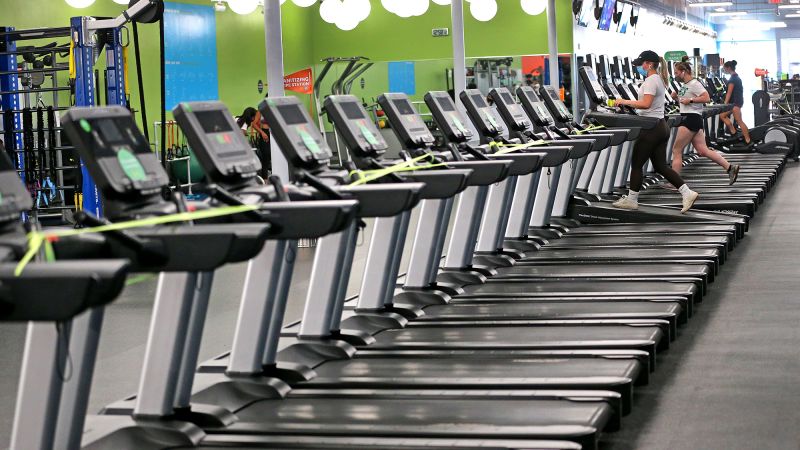Blink Fitness, a low-price gym chain with monthly memberships ranging from $15 to $45, recently filed for bankruptcy, citing financial constraints from the Covid-19 pandemic. The company, owned by luxury gym chain Equinox, may need to close an unspecified number of its 101 clubs primarily located in cities and suburban areas in New York, New Jersey, California, and Texas. Blink has over 400,000 members, but the ongoing impact of the pandemic on the fitness industry has left the company struggling to catch up on missed rent payments and deal with unprofitable club locations. This bankruptcy filing is indicative of the growing pains the fitness industry continues to face post-Covid.
The pandemic has had a significant impact on the fitness industry, with around 25% of US gyms and studios permanently closing during the past year – approximately 10,000 facilities. Major gym chains like 24 Hour Fitness and Gold’s Gym have also filed for bankruptcy amidst the economic challenges brought on by the pandemic. Blink Fitness was hit hard during the height of the pandemic in 2020 when all of its clubs were temporarily closed, leading to a loss of revenue and financial strain. The company is now working to recover from the setbacks of the past year and adapt to the changing landscape of the fitness industry.
Despite the challenges faced by the fitness industry, luxury gyms like Life Time and Equinox are exploring new opportunities for growth. Life Time has been acquiring weight loss clinics with doctors who can prescribe GLP-1 drugs, a powerful new class of medications that have shown effectiveness in helping individuals lose weight. Equinox is also adapting to consumer trends, designing exercise programs specifically for individuals taking GLP-1s. These strategic moves showcase how fitness companies are adapting to changing consumer needs and preferences in the post-pandemic era.
However, the closure of affordable gyms like Blink Fitness may make it harder for individuals to find accessible fitness options. With a wide range of monthly membership prices, Blink provided an affordable option for many individuals looking to stay active and healthy. The closure of some of Blink’s clubs could leave a gap in the market for low-cost gym options, making it more challenging for individuals on a budget to find suitable fitness facilities. This shift in the industry highlights the ongoing changes and challenges that the fitness sector continues to face post-Covid.
The health and fitness industry is also facing external challenges, such as consumers cutting back on discretionary spending and the rise of GLP-1 drugs for weight loss. As individuals prioritize their spending and focus on health and wellness, the industry must adapt to meet changing demands. By incorporating new technologies, services, and programs, fitness companies can stay competitive and attract customers seeking innovative and effective solutions for their health and fitness goals. Despite the potential challenges ahead, the fitness industry remains resilient and adaptable, with opportunities for growth and innovation in the post-pandemic landscape.
Overall, the bankruptcy of Blink Fitness reflects the broader challenges faced by the fitness industry in the wake of the Covid-19 pandemic. With closures of gyms and studios, financial constraints, and shifts in consumer behavior, companies in the fitness sector must navigate a changing landscape to survive and thrive. By adapting to new trends, exploring innovative solutions, and prioritizing customer needs, fitness companies can overcome challenges and continue to provide accessible, affordable, and effective fitness options for individuals seeking to improve their health and well-being.


